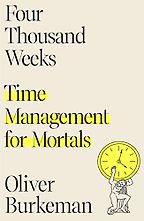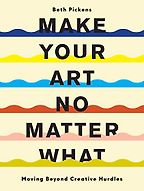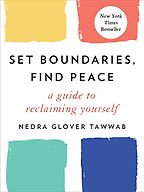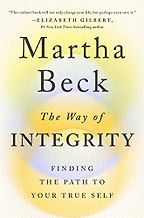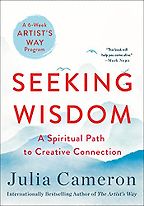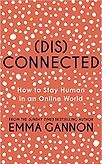I’m really glad that you’ve agreed to recommend the best self help books of 2021, because this is the time of year when everyone is thinking of their new year’s resolutions. Was it a particularly good year for self-help and self-improvement, do you think?
From a personal standpoint, definitely. I feel I’ve had a lot of personal growth in the sense that I got a life coach last year, and read a lot of books during the lockdowns. I wouldn’t want to speak on behalf of anyone else, but I do think in general we’re seeing a trend towards looking inwards. If we’re stuck within our four walls, what else is there to look at? The pandemic been labelled the ‘great pause.’ And with a pause does come reflection. So I think we’re reaching for self help books now more than ever.
Listening to audiobooks has been on the rise too—I know lots of friends, and friends of friends, who have started listening to books as they go for walks, and enjoying listening to memoirs which to me are a form of self help or life guidance to the reader. According to Publishers Association, audiobook sales soared in the first six months of 2021, up 71% on the same period in 2019 which is an incredibly steep increase, so that’s really interesting.
When you were putting together your list of 2021 self help books, did any particular themes become obvious?
Yes. Two big things that came out of it were setting boundaries around your time, and creativity. At the end of the day, creativity feels to me very much synonymous with spirituality and the broader themes of self help. I think when people say they want to change their life, they often mean they want to find more time, more money, be more confident, have more space, or more joy, I feel like a lot of it always comes back to creativity. Not so much the ‘side hustle’ chat—more: What will bring you joy? What would you want to be making even if no one sees it?
“Self-help books can enable us to feel inspired again”
One of the big frustrations at the moment is to do with work. We are constantly working, in an era of constant distraction, we are on our phones more than ever, and we don’t know when to stop. So people want to make time for their creativity and their hobbies, basically. Self-help books can enable us to feel inspired again.
Absolutely. And while that is an evergreen problem, I think that’s become a particular issue for people newly working from home. They found the boundary between work and life increasingly blurred. And they spend a lot of time online, for work and play both. I think this ties into your new book, which is just about to be released. Could you tell us a bit about (Dis)connected?
We’ve had two years now of more screen time that we have ever had before. And I think a lot of us were already at breaking point even before that. When everything’s behind a screen it can feel a bit robotic. So I wanted to write a book about that, but not a digital detox book. I’ve read a lot of well-meaning articles telling you to go cold turkey—just stop looking at your phone. But I always find that anxiety inducing, and it makes me feel even worse about myself—that I can’t be that person who can switch off.
With (Dis)connected, I’m trying to find that middle ground. It’s full of practical prompts around how we use our phone, how we can reflect on our own personal relationship with it and our engrained habits. There are no dos or don’ts in there; it’s more about whether you feel you should be on social media, and whether it might help if you put your phone to bed a little earlier. Are you scrolling mindlessly, or are you looking up interesting things and reading the news? It’s just really a sort of clean-out, the way you might clean your fridge, or do a Marie Kondo in your house. I know I really needed to overhaul how I was using my phone to stay sane, so everything I’ve learned I have put in this very small, pocket-sized book. I basically wrote the book I felt I needed.
Thanks. Let’s talk about your first book recommendation. This is Oliver Burkeman’s Four Thousand Weeks. I have had a lot of conversations about this simple yet profound book.
I love this book so much. He’s an amazing writer. He was the productivity guru for The Guardian, so every single week he would try out a different productivity hack. He was obviously someone who was quite obsessed with productivity—but realised that ‘inbox zero,’ smashing deadlines, so that you can produce more and more is a trap. This book is all about his realisation that it’s all a bit of a scam: there is no finish line, no trophy for doing the to-do list every day.
Get the weekly Five Books newsletter
The title of the book is roughly the span of a human life. It’s meant to be quite arresting and shocking; it’s not that many weeks if you really think about it. The book is about life being finite, and how a lot of our daily stresses are quite pointless. He’s trying to remind us that we’re obsessed with something that just doesn’t need to be obsessed over.
Completely. Our philosophy editor Nigel Warburton selected this as one of the top five philosophy books of 2021; I think people won’t necessarily recognise this as a philosophy book, as that’s not how it’s been marketed, but it smuggles quite a lot of philosophical discussion in there.
I’ve really noticed that, across the board, a lot of business authors, or traditional self help coaches, are turning so much more philosophical. And I think talking about spirituality seemed a bit ‘out there’ a few years ago, but it’s going to become incredibly mainstream in the next few years. It’s already getting there.
Next you’ve chosen Beth Picken’s Make Your Art No Matter What: Moving Beyond Creative Hurdles.
This is a really great book about being an artist, and making art, no matter the outcome. Her book is really rebelling against that idea that if you don’t quit your day job and make money from your art, you shouldn’t bother. No: it’s OK to keep your day job, and it’s OK if things don’t immediately start making money. Your art is worth something. The time you spend making it is worth something. Beth says we should all make art, even in our spare time. It really reminded me of reading Big Magic by Elizabeth Gilbert back in 2015. It’s really encouraging—a person reminding you that making art can bring you joy. It doesn’t have to be about other people.
It’s really a sort of manual, a bit of a guidebook. It covers absolutely everything. It really looks about the hurdles that people face. She talks about fear of self-promotion and fear of marketing. Dealing with the pain of rejection. I love that she busts a lot of myths. For example, one thing that people think is that you need a lot of time to make something. People will say: if I only had six months, I would write a novel. Well, actually, if you had six months of doing nothing, I actually think that might be worse for your writing. You’ll just say, ‘oh well, I’ll do it tomorrow.’ For me, my books aren’t written in week-long staycations by the sea or months away from other work, but in short regular pockets of time e.g. 1 hour in a cafe or in bursts of 25 minute Pomodoro sessions. The obsession with wanting long stretches of free time can get in the way.
That’s an interesting point. Over the years I’ve undertaken a few writing residencies. They are all about finding the ‘time and space’ to write—they feed you, take care of housekeeping. I’ve achieved plenty in those periods, but all the same conversations between residents often revolve around a sense of guilt—that we have all this time, but there is still a fairly low ceiling on how much creative work it’s possible to achieve during a working day. If you strip everything else away, then yes, you write more than normal, but you don’t write all day. You end up taking long walks. Having baths. Luxurious time wasting, in other words.
Exactly. Having too much thinking time hasn’t been great for me. If I sit around, I can reflect on the problems with what I’ve just written. But if I’m busy, I can’t dwell on it too much.
Similarly, some people think that if they had all the money in the world, you’d write the great American novel. But she breaks down why that isn’t the answer. For example, someone she knows has a big inheritance and a lot of time, and the woman has been trying to write this novel. But the grief from this death in the family is causing problems. There are other examples of this: people who, on paper, have a perfect environment, but it just hasn’t worked. So it’s very uplifting. I reminds you that no matter what you have, you can do something with it.
I interviewed Jessie Burton for my podcast a few months ago. She wrote The Miniaturist in and around her job as an executive PA. Obviously I don’t want to romanticise that, because it’s really hard, and not everyone can have that energy at the end of the day to put into something else, but the idea of someone writing for 20 minutes on their lunch break and actually producing something of importance in literature is really inspiring to me.
I’m not sure I could do what Jessie did. But I do agree that, when working during bursts of inspiration, you can produce a lot in a short space of time. Let’s talk more about how we might demarcate time and energy: you’ve chosen Set Boundaries, Find Peace: A Guide to Reclaiming Yourself by Nedra Glover Tawwab.
Yes, I love this book. It’s a beginner’s guide to boundaries, which has become a bit of a buzzword. People who have had a lot of therapy will be familiar with this word, but I only came across it quite recently.
Nedra has been a therapist for nearly 15 years. She’s very good on Instagram, but having a physical book of her knowledge is very useful. She describes how having bad—or what she’d call ‘porous’—boundaries impacts your whole life. You might not like your friends, because you’ve let people in who aren’t right for you. You say ‘yes’ to events that stress you out. You’re drinking on nights out when you don’t want to. Basically, if you’re someone who feels like you’re getting pushed around your life, this book is just amazing. It helps you get under the skin of why you’re doing that, and perhaps without even realising it.
Five Books interviews are expensive to produce. If you're enjoying this interview, please support us by donating a small amount.
I’ve got so much from it. It’s across family, work, romance, technology. For example, some people want to please their parents too much, even as an adult. She explains that if you don’t have good boundaries you will burn out much more quickly than someone who does.
There are practical quizzes and scenarios in the book. And it’s really, really interesting once you’ve noticed what you’re doing. Eye opening.
Burnout is definitely something I hear a lot of people talking about. And, more recently, people like Elizabeth Day have been talking about ‘people pleasing,’ which must reflect these so-called porous boundaries—when you bend yourself and your life to the demands of other people, in the hope of making them like you more.
Yes. There’s another book out called Please Yourself by Emma Reed Turrell, which is all about that. I think a lot of people feel like that—wanting to please everyone around us, and make sure they like us all the time.
But by setting boundaries, as advised in Nedra Glover Tawwab’s book, it allows the reader to find more energy for their own projects.
Definitely, it’s all about realising what’s not serving you any more. It can be really difficult. I found it quite confronting, because there are some relationships that probably would change if you start putting boundaries up. As she describes in the book, there are a lot of people unfortunately who quite like it if you’re that person who says yes to everything. Especially in a work context.
I found that once I learned to say no to things I didn’t want to do, some people would be quite shocked, because I used to say yes to everything. But it’s freeing me up to say yes to things I want to say yes to. It’s an amazing feeling to look at my calendar and know deep down that I do want to do everything on it. That’s shifted everything completely. Although obviously I have more agency than some, that comes with being self-employed.
Saying no is very difficult. I don’t know why it is, but it is. Or, it is to me.
It’s scary, but it’s amazing when you put it into practice. One thing that really helped me is having ready-made templates. I bought a book, a self-published book by Natalie Lue of the podcast Baggage Reclaim, which is like four hundred ways of saying no. I remember copying and pasting some of them into an email, and saving them to use whenever I needed them.
She says that you don’t have to give excuses. Don’t write, like, a massive paragraph about why you can’t do it. Just say, ‘I’m sorry, I won’t be able to do that right now.’ And what’s really great is that it really takes the pressure off. It gives you the power to realise that you are allowed to say no. You don’t have to flap around making excuses. It’s just a no.
I think this brings us to Martha Beck’s The Way of Integrity. Can you tell us about this book?
Martha Beck accidentally became a life coach after doing, I think, a sociology PhD at Harvard. She was going down a very intellectual, academic route, but realised that she wanted to help people by putting all of that science-based knowledge into helping people. She was famously Oprah Winfrey’s life coach for a while. She’s amazing.
I pre-ordered this book as soon as I heard about it, a year before it came out. It’s all about the meaning of integrity. This book isn’t about being a really good person who always gets things right. It’s more about being your whole self and not cutting yourself into pieces to please everyone. I think we all do that to some degree, because we are different with different people. But she encourages you to just be you, and not shapeshift all the time.
“It’s an amazing feeling to look at my calendar and know deep down that I do want to do everything on it”
At the beginning of the book, she says that this all came from this period where she decided not to tell a single lie for a whole year. Not even white lies. So if someone rang her up and asked her, ‘do you want to come to my birthday party,’ and she didn’t, she’d say, ‘no, I don’t want to.’ It’s quite amazing to see that in action. From there, she realised that her life got better.
She left her family of origin, who were Mormon, came out as a lesbian, got married. Basically her life became amazing. But it was really scary. She had to throw away her old life. She calls it an ‘integrity cleanse’, when you don’t tell any lies. But she also says that you don’t have to be so extreme. Even by telling slightly fewer lies, it impacts your life and health. The science backs that up.
The structure mirrors Dante’s Divine Comedy. So it’s really geeky, but also really accessible and really good.
I imagine one of the long term benefits of forcing yourself to tell the truth is that you have to work out what the truth is. I think that’s not always obvious, even to ourselves. And we spend so much obfuscating how we really feel, we make it even harder to understand what that is.
Definitely. There are lots of exercises in the book around that—asking yourself: are you are feeling what you really feel, and saying what you really mean? Are you doing what you really want? Because, yes, sometimes we get confused. But what I took from it was that whenever you are in intergrity, you feel relaxed.
For example, I was organising a big party for next year. Every time I thought about it, I was stressed. It just didn’t feel right. So I sent an email to everyone that said ‘I’m really sorry, but I don’t want to do it any more.’ And everyone said, ‘oh my god, it’s fine.’ And my body just relaxed. I felt relief. There was just the feeling that, yes: that’s the truth. I don’t want to do it any more. That’s a really random example, but it’s real life.
I often think about a Five Books interview I did with a sports psychologist who works with high performing athletes in the US. He said he does a lot of deep work around finding purpose, which in turn drives motivation. I suppose it’s a similar exercise to this search for ‘integrity’ in Martha Beck’s formulation. I suppose I didn’t expect baseball players to have much need for this kind of soul searching, but if you’re training very hard, day after day, then of course knowing what you’re doing it for must be quite important.
Yes. And once you realise what you actually want, you have a lot of clarity on what you need to have a really nice life. I think we’re often conditioned to want certain things like a big home, lots of money, and so on. But actually, when we think about it, a lot of us don’t actually care about that stuff so much. So you might be striving towards something you don’t even want in the first place.
I think she’s a very, very happy person. Or not even happy, fulfilled. She lives in the woods with her non-traditional family set up, living her own life. It’s very infectious, that kind of peace. I think we can all aspire towards it, whatever shape that might take.
Finally, we should talk about your final book choice. It’s Julia Cameron’s Seeking Wisdom. You read this in 2021, but strictly speaking it is a 2022 book as it is only just out. Julia Cameron is very well known for her earlier, legendary book on creativity, The Artist’s Way.
I love Julia Cameron. I read everything she ever puts out. She’s just so comforting, I think that’s the best word to describe her. I think I’ve also been seeking that sort of maternal, grandmother’s wisdom. She’s in her late seventies, I think.
Julia’s work, across all her books, is about helping artists become unblocked. It’s really interesting, because I think Julia Cameron’s books are like Trojan horses. She talks about intense topics, through quite a broad lens. And she’ll use words like ‘God’ in her books, but prefaces it with the statement that she’s talking about ‘creative energy’, which I think appeals to younger people who might not be religious.
I think at this time in history, so many of us feel lost because we don’t have anything to believe in. Most of us don’t have a religion, or it’s fading away. We might not have a strong sense of community, especially if you live in the city. Julia Cameron is asking the reader to believe in something again. For her, it’s speaking out loud. You don’t have to believe you’re praying for something, it’s just manifesting your hopes and dreams by talking outwardly about what you want.
She’s very into journaling, and putting things out there. Even if you don’t know where those things are going out to, I think she’s just asking you to believe in the world again.
I know a number of people who I definitely would not have had down as Julia Cameron fans who have taken many of her lessons to heart. Her ‘Morning Pages’ exercise, in which a person free-writes three pages first thing every day, has become very popular.
There is something about her that really seems to capture people. I think it’s because she’s so honest and vulnerable about her own journey. In the new book, she recaps on her alcoholism. Her life was going one of two ways, and thank God it went this way, where she got sober. The thing that got her out of the grips of that was her Morning Pages. And the ‘seeking wisdom’ she talks about in this book is seeking help not only from people around her in her physical form, but more widely, from people who have passed away. Not in a woo-woo way, but by writing them letters or speaking out loud to them.
That’s an interesting thing about her. It could turn a lot of people off. But weirdly, she brings everyone in. Her book Floor Sample is one of my favourite memoirs. It’s about her alcoholism and being married to Martin Scorsese, and how she nearly ruined her career—but got it back again. So I just find her endlessly inspiring and I have interviewed for my podcast three times now!
Interview by Cal Flyn, Deputy Editor
January 5, 2022
Five Books aims to keep its book recommendations and interviews up to date. If you are the interviewee and would like to update your choice of books (or even just what you say about them) please email us at [email protected]
